
September 19

September 19
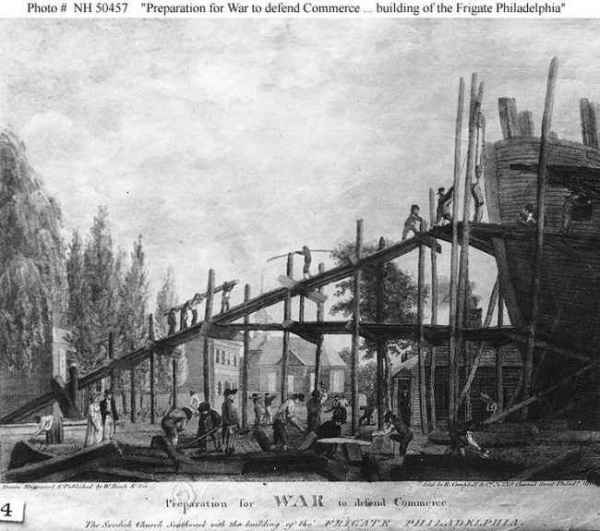
1796 Origins of American Isolationism: George Washington's Farewell Address:
Excessive partiality for one foreign nation and excessive dislike of another cause those whom they actuate to see danger only on one side, and serve to veil and even second the arts of influence on the other. Real patriots who may resist the intrigues of the favorite are liable to become suspected and odious, while its tools and dupes usurp the applause and confidence of the people, to surrender their interests. The great rule of conduct for us in regard to foreign nations is in extending our commercial relations, to have with them as little political connection as possible. So far as we have already formed engagements, let them be fulfilled with perfect good faith. Here let us stop. [For the full text, Click here.]
From The History of the World by J. M. Roberts:The American aspiration to non-involvement with the outside world was already clear in 1793, when the troubles of the French revolutionary war led to a Neutrality Proclamation rendering American citizens liable to prosecution in American courts if they took any part in the Anglo-French war. The bias of American policy already expressed in this received its classical formulation in 1796. In the course of Washington's Farewell Address to his "Friends and Fellow-Citizens" as his second term drew to a close, he chose to comment on the objectives and methods which a successful foreign policy should embody, in language to be deeply influential both on later American statesman and on the national psychology. In retrospect, what is now especially striking about Washington's thoughts is their predominantly negative and passive tone . . . .
Washington warned his countrymen against assumptions of permanent or special hostility or friendship with any other nation. In all this there was no hint of America's future destiny as a world power (Washington did not even consider other than European relations; America's future Pacific and Asian role was inconceivable in 1796).
1898 Volkishness: Father Georg (Adolf Josef Lanz) assumes teaching duties in the seminary at Heiligenkreuz (A). (THP)
In 1893, at the age of 19, Lanz became a novice at a monastery of the Cistercian order at Heiligenkreuz, on the present Austro-Hungarian border, but was expelled six years later accused of being a victim of 'worldly and carnal desires.' Shortly after being expelled he founded his Order of the New Templars, which had a strong racial orientation. It was inspired, as the name suggests, by the Templar knights. Since 1905 Lanz became the editor and publisher of the anti Semite magazine Ostara. Named after the ancient Germanic goddess of Spring, Ostara was a grotesque, racially motivated magazine devoted to the diffusion of Lanz's ideas. It displayed the swastika as a rallying symbol. Most of the ideology of German racial superiority exposed by the Thule Society and later by the Nazis was but a development of the theses published in Ostara. [For further details, Click here.]
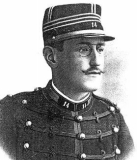
1900 President Loubet of France pardons Jewish army captain Alfred Dreyfus—twice court-martialed and wrongly convicted of spying for Germany. [For further details, Click here.]
1905 Birth: Leon Jaworski: Polish background, Special Prosecutor during the Watergate Scandal. During World War II, he served as a war crimes prosecutor in Germany. He declined to participate in the Nuremberg Trials on grounds that the prosecution there was based on laws that did not exist at the time of the culpable acts. [For further details, Click here.]
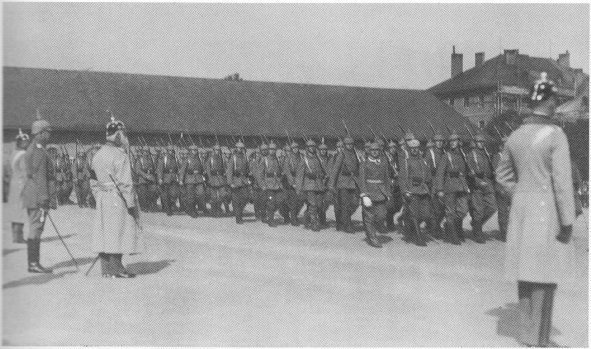

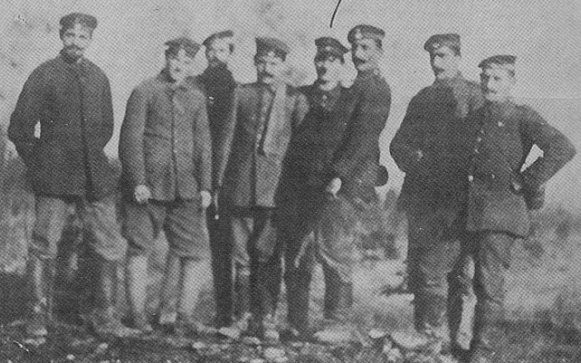
Hitler and his fellow dispatch runners
1917 World War I: Various: American troops of the Allied North Russia Expeditionary Force begin arriving in Siberia
Speculation had many reasons why the American forces were sent to Russia; to reopen the Eastern Front with the aid of other nations and the Russian autocratic regime, to protect war supplies shipped to Russia and the railroad, to ensure that other nations did not, by their presence, obtain unfair commercial advantages, to stabilize and influence the autocratic regime by intervention in a civil war. The British openly supported the White Russian regime and used the forces under their command in an attempt to suppress Soviet Bolshevism. President Wilson agreed to send troops to North Russia after repeated requests were made by the British. [For further details, Click here.]
[See: Did Adolf Hitler Cause the Cold War?]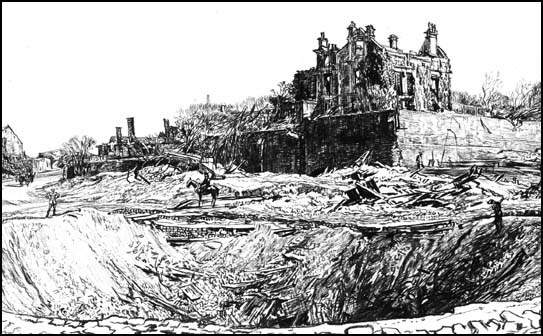
1918 World War I: Various: British offensive begins in Palestine:
On September 19, 1918, British forces in Palestine renew their offensive against the Turkish lines north of Jerusalem, beginning with the capture of Megiddo, the city mentioned in the Bible as the site of the Battle of Armageddon. [For further details, Click here.]
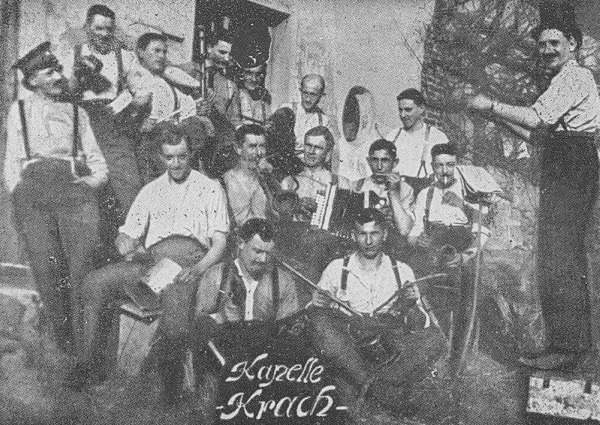
1928 American icon Mickey Mouse makes his film debut at Colony Theatre, New York City. His voice and creator Walt Disney owed a debt to his wife, who advised him that Mickey Mouse was a better name than "Mortimer Mouse." Mickey stars in Steamboat Willie, his first sound film, and will appear in over one hundred other movies, and later, in Disney's two popular theme parks. Within ten years, Mickey Mouse is one of the most loved, most well-known figures in the world. In the time of the Great Depression, plucky Mickey becomes an all-time favorite. Among the leagues of fans are FDR, Britain's King George V, Italy's Mussolini, and Adolf Hitler. [For further details, Click here.]
1934 Various: US Secretary of State Cordell Hull
From notes on a conversation with Hjalmar Schacht:

He then acknowledged that the Hitler Party is absolutely committed to war; and the people, too, are ready and willing. Only a few government officials are aware of the dangers and are opposed. He concluded, 'But we shall postpone it 10 years. Then it may be we can avoid war. I reminded him of his Bad Eilsen speech some 2 weeks ago and said, 'I agree with you about commercial and financial matters in the main. But why do you not, when you speak before the public, tell the German people they must abandon a war attitude?' He replied, 'I dare not say that. I can speak only on my special subjects. How, then, can German people ever learn the real dangers of war, if nobody ever presents that side of the question? He once more emphasized his opposition to war and added that he had used his influence with Hitler—'a very great man', he interjected—to prevent war. I said, 'The German papers printed what I said at Bremen about commercial relations between our countries, but not a word about the terrible effects and barbarism of war.' He acknowledged that and talked very disapprovingly of the Propaganda Ministry which suppresses everything it dislikes. He added, as I was leaving 'You know a party comes into office by propaganda and then cannot disavow it or stop it. [For further details, Click here.]
1939 World War II: Various:
Poland: Conclusion of the battle in the Vistula bend, with the Wehrmacht taking 170,000 prisoners.
The Polish commander in chief, Marshal Edward Rydz-Smigly, ordered a general retreat to the southeast. The Germans, however, were by that time not only tightening their net around the Polish forces west of the Vistula (in the Lodz area and, still farther west, around Poznan) but also penetrating deeply into eastern Poland. The Polish defense was already reduced to random efforts by isolated bodies of troops. [For further details, Click here.]
From the Reich Foreign Minister (Joachim von Ribbentrop) to the German Ambassador in the Soviet Union (Schulenburg):
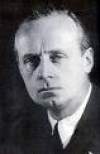
I request that you tell Herr Stalin that you reported to Berlin about your conference with him, and that you are now expressly directed by me to inform him that the agreements which I made on the authorization of the Fuehrer at Moscow will, of course, be kept, and that they are regarded by us as the foundation stone of the new friendly relations between Germany and the Soviet Union. [For further details, Click here.]
From occupied Danzig, Hitler makes his first speech of World War Two, which officially began with his invasion of Poland:

Meantime, Russia felt moved, on its part, to march in for the protection of the interests of the White Russian and Ukrainian people in Poland. We realize now that in England and France this German and Russian cooperation is considered a terrible crime. An Englishman even wrote that it is perfidious - well, the English ought to know. I believe England thinks this cooperation perfidious because the cooperation of democratic England with bolshevist Russia failed, while National Socialist Germany's attempt with Soviet Russia succeeded. [For further details, Click here.]
Lavrenti Beria sets up a Directorate for Prisoners of War and establishes camps for 240,000 Polish POWs in Soviet custody; about 37,000 will be used as forced-labor. Note: Beria will be one of those hovering around Stalin's death bed, and will, due to his position as head of the Soviet secret police apparatus, emerge as the obvious candidate for succession. Khrushchev (see his 'Memoirs,' they are highly recommended reading) and his group will undermine Beria's authority in the Party by spreading rumors that he was inclined to take in homeless girls, preferably underage, drug them and take advantage of them. Whether there is any truth to the story has never been established, but it will be enough to spell Beria's eventual doom.
[See: Worst Dictator of Modern Times: Hitler or Stalin?]1941: World War II: Various:
Germans bombard Leningrad:
On this day in 1941, as part of their offensive campaign in the Soviet Union, German bombers blast through Leningrad's antiaircraft defenses, and kill more than 1,000 Russians Hitler's armies had been in Soviet territory since June. An attempt by the Germans to take Leningrad (formerly St. Petersburg) in August by a massive panzer invasion had failed. Hitler had wanted to decimate the city and hand it over to an ally, Finland, who was attacking Russia from the north. But Leningrad had created an antitank defense sufficient to keep the Germans at bay; and so a siege was mounted.
German forces surrounded the city in an attempt to cut it off from the rest of Russia. (Finland eventually stopped short of an invasion of Leningrad, happy just to recapture territory it had lost to the Soviet invasion in 1939.) The halt of the German land attack and the withdrawal of the panzer divisions to be used elsewhere did not stop the Luftwaffe from continuing to raid the city. ("The Fuhrer has decided to have St. Petersburg wiped off the face of the Earth," declared Hitler to his generals.)
The air attack of the 19th was particularly brutal; many of those killed were already recuperating from battle wounds in hospitals, which were hit by German bombs. The siege of Leningrad would last a total of 872 days and would prove devastating to the population. More than 650,000 Leningrad citizens died in 1942 alone, from starvation, exposure, diseases, and artillery shelling from German positions outside the city. The only route by which supplies could enter the city was via Lake Ladoga, which entailed sleds negotiating ice during the winter. But the resources that got through were only enough to prolong the suffering of the Leningraders. Even tales of cannibalism began leaking out of the city.
Soviet forces were finally successful in breaking the siege in January 1944, pushing the Germans 50 miles from the city. Among those trapped in the city was an air-raid warden born in St. Petersburg named Dimitri Shostakovich, who wrote his Seventh Symphony during the siege. He was eventually evacuated and able to perform his masterwork in Moscow. The U.S. premiere of the piece raised relief funds for the desperate Russians.
Holocaust: Heinrich Jost, a German sergeant, smuggles a camera into the Warsaw ghetto, and against all regulations, photographs the suffering and misery of the Jews trapped inside. (THP)
[See: How Widespread Was Guilty Knowledge of the Holocaust?]France: Appeal to the population of occupied territories:
On 21 August a German soldier was fired on and killed by cowardly murderers. In consequence I ordered on 23 August that hostages be taken, and threatened to have a certain number of them' shot in case such an assault should be repeated. New crimes have obliged me to put this threat into execution. In spite of this, new assaults have taken place.
I recognize that the great majority of the population is conscious of its duty, which is to help the authorities in their unremitting effort to maintain calm and order in the country in the interest of this population. But among you there are agents paid by powers hostile to Germany, Communist criminal elements who have only one aim, which is to sow discord between the occupying power and the French population. These elements are completely indifferent to the consequences, affecting the entire population, which result from their activity. I will no longer allow the lives of German soldiers to be threatened by these murderers. I shall stop at no measure, however rigorous, in order to fulfill my duty. But it is likewise my duty to make the whole population responsible for the fact that, up to the present, it has not yet been possible to lay hands on the cowardly murderers and to impose upon them the penalty which they deserve.
That is why I have found it necessary, first of all for Paris, to take measures which, unfortunately, will hinder the everyday life of the entire population. Frenchmen, it depends on you whether I am obliged to render these measures more severe or whether they can be suspended again. I appeal to you all, to your administration and to your police, to cooperate by your extreme vigilance and your active personal intervention in the arrest of the guilty. It is necessary, by anticipating and denouncing these criminal activities, to avoid the creation of a critical situation which would plunge the country into misfortune. He who fires in ambush on German soldiers, who are doing only their duty here and who are safeguarding the maintenance of a normal life, is not a patriot but a cowardly assassin and the enemy of all decent people.
Frenchmen! I count on you to understand these measures which I am taking in your own interests also.-Signed Von Stulpnagel.
Barbarossa: Hitler's drive south nets the city of Kiev in the Ukraine. 650,000 Russian soldiers are captured, the largest number in any war, ever.(THP)
[See: Was Adolf Hitler a 'Great' Military Leader?]1943 World War II: Joseph Goebbels laments the fall of Mussolini:
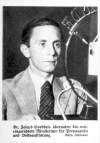
The Badoglio regime did not want to leave the war in an honorable way, but rather at the cost of the Axis partner that Italy owes so much to since 1940. The king made the most pompous calls to continue the war and hold to Italy's obligations, while military and political actions demonstrated treason of the most disgraceful and degrading sort. Spare us the necessity of going through the Badoglio regime's treachery. Even thinking about it sickens us. There has never been a greater example of treachery in all of history. [For further details, Click here.]
1944 World War II: Various:
Arnhem: British paratroop forces encounter unexpected heavy German resistance. [For further details, Click here.]
Finland signs an armistice with the Allies.
Since June 1941 Germany and Finland had been at war with the Soviet Union, co-operating closely in the war effort. As early as the summer of 1943, the German high command began making plans for the eventuality that Finland might make a separate peace agreement with the Soviet Union. The Germans planned to withdraw their forces northward in order to shield the nickel mines near Petsamo. During the winter of 1943-1944, the Germans improved the roads from northern Norway to northern Finland by extensive use of POW labor. Casualties among the POWs were high, due in part to the fact that many of the POWs had been captured in southern Europe and were still in summer uniform. As well, the Germans accumulated stores in the region. Thus the Germans were ready in September 1944, when Finland declared an armistice with the Soviet Union. [For further details, Click here.]
Estonia: As Soviet forces approach Klooga, the Germans kill almost all of the 3,000 surviving slave laborers, including 1,500 Jews from Vilna, 800 Soviet prisoners-of-war, and 700 Estonian political prisoners. Only 85 inmates survive. (THP)

1945 William Joyce, also known as "Lord Haw-Haw," is sentenced to death by a British court for his role as a Nazi propagandist. [For further details, Click here.]
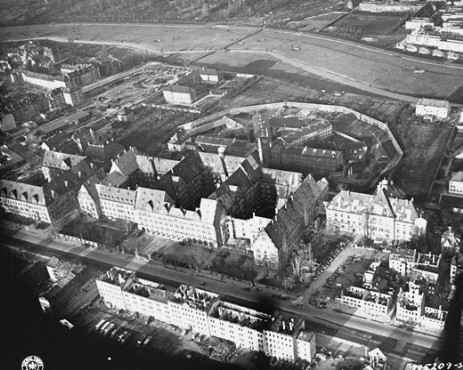
1946 Nuremberg Tribunal
: The justices continue meeting to discuss verdicts in the Major War Criminals Trial. (See: 30 September 1946)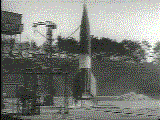
1946 5,000 laborers are now employed in construction of new V-2 rockets throughout the Soviet occupation zone. (Menaul)
From Living America by Norman C. Lumian:
The moves which the Soviets made at the end of the war gave some indication of how difficult it would be to deal with the Russians in a peacetime situation. Basically, Russia wished to retain the economic and political domination of those nations in her power, while causing great confusion in others. The Russians had indicated that they wished to strip Germany and her allies of their industrial equipment at the Potsdam Conference of July 1945. This would render the Axis powers less able to make war again. Germany and the others would be turned into agricultural nations.
Russia carried out her desires with a vengeance in East Germany. The United States, England, and France—the controlling nations of West Germany—soon saw the folly of this plan which would leave the Germans with very little to support themselves. By the end of May 1946, the United States had given up the policy of dismantling German industry, and in September started to rebuild her enemies' shattered nation.
1955 Peron deposed in Argentina:
After a decade of rule, Argentine President Juan Domingo Peron is deposed in a military coup. Peron, a demagogue who came to power in 1946 with the backing of the working classes, became increasingly authoritarian as Argentina's economy declined in the early 1950s. His greatest political resource was his charismatic wife, Eva "Evita" Peron, but she died in 1952, signaling the collapse of the national coalition that had backed him. Having antagonized the church, students, and others, he was forced into exile by the military in September 1955. He settled in Spain, where he served as leader-in-exile to the "Peronists"—a powerful faction of Argentines who remained loyal to him and his system. [For further details, Click here.]
1957 Nevada is site of first-ever underground nuclear explosion:
On this day in 1957, the United States detonates a 1.7 kiloton nuclear weapon in an underground tunnel at the Nevada Test Site (NTS), a 1,375 square mile research center located 65 miles north of Las Vegas. The test, known as Rainier, was the first fully contained underground detonation and produced no radioactive fallout. A modified W-25 warhead weighing 218 pounds and measuring 25.7 inches in diameter and 17.4 inches in length was used for the test. Rainier was part of a series of 29 nuclear weapons and nuclear weapons safety tests known as Operation Plumbbob that were conducted at the NTS between May 28, 1957, and October 7, 1957. [For further details, Click here.]
1959 Cold War: Khrushchev barred from visiting Disneyland :In one of the more surreal moments in the history of the Cold War, Soviet leader Nikita Khrushchev explodes with anger when he learns that he cannot visit Disneyland. The incident marked the climax of Khrushchev's day in Los Angeles, one that was marked by both frivolity and tension. [For further details, Click here.]
Edited by Levi Bookin (Copy editor)levi.bookin@gmail.com Click to join 3rdReichStudies Disclaimer: This site includes diverse and controversial materials—such as excerpts from the writings of racists and anti-Semites—so that its readers can learn the nature and extent of hate and anti-Semitic discourse. It is our sincere belief that only the informed citizen can prevail over the ignorance of Racialist "thought." Far from approving these writings, this site condemns racism in all of its forms and manifestations. 










Fair Use Notice: This site may contain copyrighted material the use of which has not always been specifically authorized by the copyright owner. We are making such material available in our efforts to advance understanding of historical, political, human rights, economic, democracy, scientific, environmental, and social justice issues, etc. We believe this constitutes a "fair use" of any such copyrighted material as provided for in section 107 of the US Copyright Law. In accordance with Title 17 U.S.C. Section 107, the material on this site is distributed without profit to those who have expressed a prior interest in receiving the included information for research and educational purposes. If you wish to use copyrighted material from this site for purposes of your own that go beyond 'fair use', you must obtain permission from the copyright owner.
Please Note: The list-owner and moderators of 3rdReichStudies are not responsible for, and do not necessarily approve of, the random ads placed on our pages by our web server. They are, unfortunately, the price one pays for a 'free' website.



